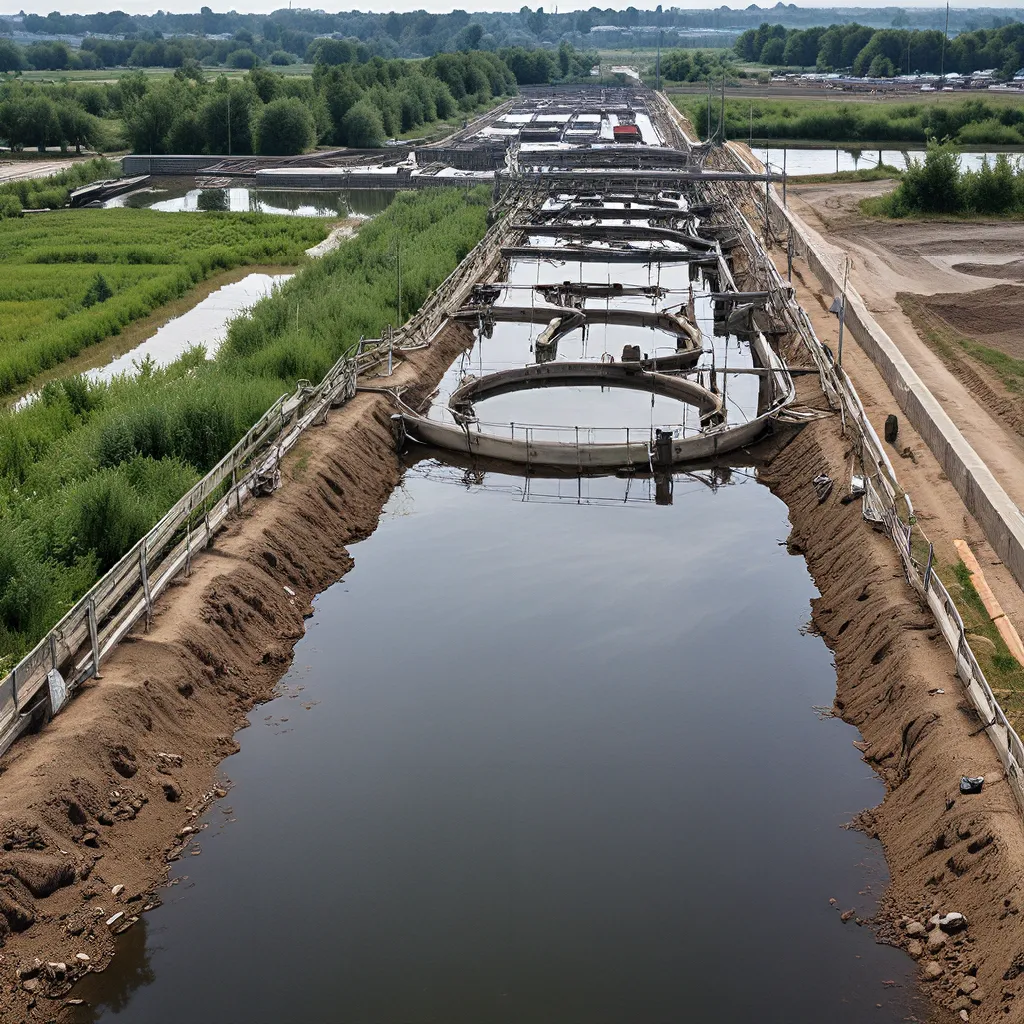
As someone who’s passionate about the environment and the future of our cities, I’ve been fascinated by the intersection of wastewater treatment and sustainable urbanization. It’s a topic that, quite frankly, doesn’t get the attention it deserves – but trust me, it’s a game-changer when it comes to building a greener, more resilient world.
The Untapped Potential of Wastewater
Let’s start with the basics. Wastewater – that murky, smelly stuff that flows down our drains and through our sewers – is actually a treasure trove of resources just waiting to be tapped. I’m talking about everything from nutrients and organic matter to water and energy. Yep, that’s right – your toilet flushes are a renewable energy source. Mind-blowing, I know.
The U.S. Environmental Protection Agency has been doing some really fascinating research in this area, and what they’ve uncovered is nothing short of revolutionary. They’ve found that by optimizing our wastewater treatment processes, we can recover up to 30% of the energy used to treat that wastewater. That’s a game-changer, folks.
But it doesn’t stop there. Nutrients like nitrogen and phosphorus, which are essential for plant growth, can also be extracted from wastewater and used as fertilizers. And get this – the water itself can be treated and reused for all sorts of applications, from irrigation to industrial processes. It’s a closed-loop system that could help us tackle some of the biggest challenges facing our cities and our planet.
Sustainable Urbanization: A Holistic Approach
Now, you might be wondering, “Okay, this all sounds great, but what does it have to do with sustainable urbanization?” Well, my friend, it has everything to do with it.
Research has shown that integrating wastewater treatment and recovery into urban planning and design can have a profound impact on the sustainability of our cities. By optimizing resource recovery, we can reduce our reliance on finite natural resources, minimize waste and emissions, and improve the overall resilience of our urban ecosystems.
Imagine a city where wastewater is treated on-site, with the recovered nutrients and water being used to irrigate urban farms and green spaces. Or a city where energy captured from wastewater is used to power local communities. It’s a vision of the future that’s not only more environmentally-friendly, but also more economically and socially resilient.
The Challenges and Opportunities
Of course, transitioning to this kind of sustainable wastewater management isn’t without its challenges. There are technical, financial, and regulatory hurdles that need to be overcome. But I firmly believe that the potential benefits far outweigh the challenges.
That’s why I’m so excited about the work being done by companies like Alpha Wastewater. They’re at the forefront of innovative wastewater treatment technologies and integrated urban water management solutions. Their approach is all about maximizing resource recovery, minimizing environmental impact, and creating more livable, sustainable communities.
And you know what? I think we’ve only just scratched the surface of what’s possible. As research and technology continue to evolve, I’m confident that we’ll see even more groundbreaking advancements in the field of wastewater management and sustainable urbanization. It’s an area that’s ripe for innovation and disruption, and I can’t wait to see what the future holds.
Embracing the Future, Together
So, what does all of this mean for you? Well, if you’re a city planner, a developer, or someone who cares about the future of our urban environments, I encourage you to explore the possibilities of integrated wastewater treatment and resource recovery. It’s a game-changer that could transform the way we build and live in our cities.
And if you’re just a curious citizen like me, I’d encourage you to stay informed and get involved. Attend local community meetings, support policy initiatives, and educate yourself on the latest developments in this exciting field. After all, we’re all in this together, and the decisions we make today will shape the world we leave for future generations.
So, let’s embrace the power of wastewater and build a more sustainable, resilient future for our cities and our planet. Who knows, maybe one day, we’ll all be flushing our way to a greener tomorrow. (Pun very much intended, by the way.)